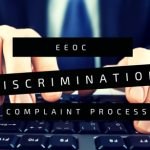Texas is what is known as a “one party consent” state. What that means is that if you are a party to a conversation in Texas (and all parties to the conversation are in Texas), you have the legal right to record that conversation. So, is recording conversations at work in Texas legal? Like a lot of legal issues, it is not always an easy answer.
Employees who are subjected to discrimination or retaliation oftentimes want to surreptitiously record conversations with their boss or human resources. The obvious motive being that the employee is looking to obtain evidence in support of his or her potential claim. It is very common for the discriminatory or retaliatory treatment to be oral only (i.e. not by email, memoranda, etc.), and unless there are witnesses to the incident, it will oftentimes result in a “he said/she said” scenario. Not surprisingly, having a recording of these conversations can be extremely helpful evidence when pursuing a discrimination or retaliation claim.
The Most Common Problem
The most common problem that arises when an employee is recording conversations in the workplace is when the employer has a stated policy prohibiting such conduct. The employer may choose to fire an employee for violating this policy, and a court may ultimately determine that it was perfectly legal for the employer to do so. While the employee has done nothing criminal by recording a conversation at work, there is no law that prohibits the employer from firing that employee for violating policy.
Remember, when at work, never record a conversation that you are not a party to. Additionally, if your employer has a policy that prohibits recording at work, it is best to not record any conversations and risk getting fired. When in doubt, contact an employment attorney in your area to discuss your rights.








